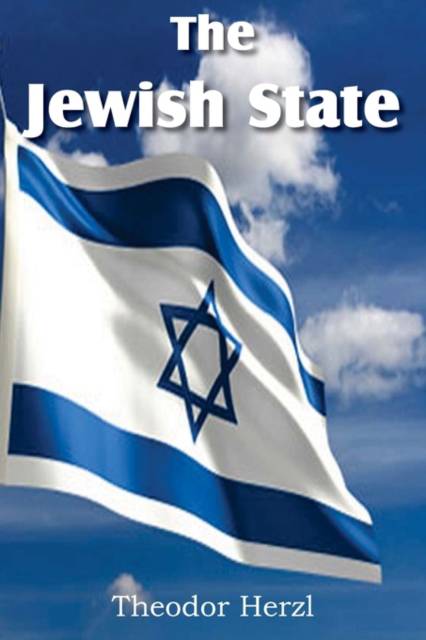
- Retrait gratuit dans votre magasin Club
- 7.000.000 titres dans notre catalogue
- Payer en toute sécurité
- Toujours un magasin près de chez vous
- Retrait gratuit dans votre magasin Club
- 7.000.000 titres dans notre catalogue
- Payer en toute sécurité
- Toujours un magasin près de chez vous
Description
As the Paris correspondent for Neue Freie Presse, Herzl followed the Dreyfus Affair, a notorious anti-Semitic incident in France in which a French Jewish army captain was falsely convicted of spying for Germany. He witnessed mass rallies in Paris following the Dreyfus trial where many chanted "Death to the Jews!" Herzl came to reject his early ideas regarding Jewish emancipation and assimilation, and to believe that the Jews must remove themselves from Europe and create their own state. In June, 1895, he wrote in his diary: "In Paris, as I have said, I achieved a freer attitude toward anti-Semitism... Above all, I recognized the emptiness and futility of trying to 'combat' anti-Semitism." However, in recent decades historians have downplayed the influence of the Dreyfus Affair on Herzl, even terming it a myth. They have shown that, while upset by anti-Semitism evident in French society, he, like most contemporary observers, initially believed in Dreyfus's guilt and only claimed to have been inspired by the affair years later when it had become an international cause celebre. Rather, it was the rise to power of the anti-Semitic demagogue Karl Lueger in Vienna in 1895 that seems to have had a greater effect on Herzl, before the pro-Dreyfus campaign had fully emerged. It was at this time that he wrote his play "The New Ghetto", which shows the ambivalence and lack of real security and equality of emancipated, well-to-do Jews in Vienna. Around this time Herzl grew to believe that anti-Semitism could not be defeated or cured, only avoided, and that the only way to avoid it was the establishment of a Jewish state. In Der Judenstaat he writes: " The Jewish question persists wherever Jews live in appreciable numbers. Wherever it does not exist, it is brought in together with Jewish immigrants. We are naturally drawn into those places where we are not persecuted, and our appearance there gives rise to persecution. This is the case, and will inevitably be so, everywhere, even in highly civilised countries-see, for instance, France-so long as the Jewish question is not solved on the political level. The unfortunate Jews are now carrying the seeds of anti-Semitism into England; they have already introduced it into America. " From April, 1896, when the English translation of his Der Judenstaat (The State of the Jews) appeared, Herzl became the leading spokesman for Zionism, although Herzl later on had confessed to his friend Max Bodenheimer, that he "wrote what I had to say without knowing my predecessors, and it can be assumed that I would not have written it, had I been familiar with the literature". A sketch in Herzl's Diary of a proposed flag for the Zionist movement. Herzl complemented his writing with practical work to promote Zionism on the international stage. He visited Constantinople in April, 1896, and was hailed at Sofia, Bulgaria, by a Jewish delegation. In London, the Maccabees group received him coldly, but he was granted the mandate of leadership from the Zionists of the East End of London. Within six months this mandate had been approved throughout Zionist Jewry, and Herzl traveled constantly to draw attention to his cause. His supporters, at first few in number, worked night and day, inspired by Herzl's example. In June 1896, with the help of the sympathetic Polish emigre aristocrat Count Philip Michael Nevlenski, he met for the first time with Abdul Hamid II to put forward his proposal for a Jewish state in Palestine. However the Sultan refused to cede Palestine to Zionists, saying, "if one day the Islamic State falls apart then you can have Palestine for free, but as long as I am alive I would rather have my flesh be cut up than cut out Palestine from the Muslim land."
Spécifications
Parties prenantes
- Auteur(s) :
- Editeur:
Contenu
- Nombre de pages :
- 114
- Langue:
- Anglais
Caractéristiques
- EAN:
- 9781612030852
- Date de parution :
- 01-02-11
- Format:
- Livre broché
- Format numérique:
- Trade paperback (VS)
- Dimensions :
- 152 mm x 229 mm
- Poids :
- 163 g







